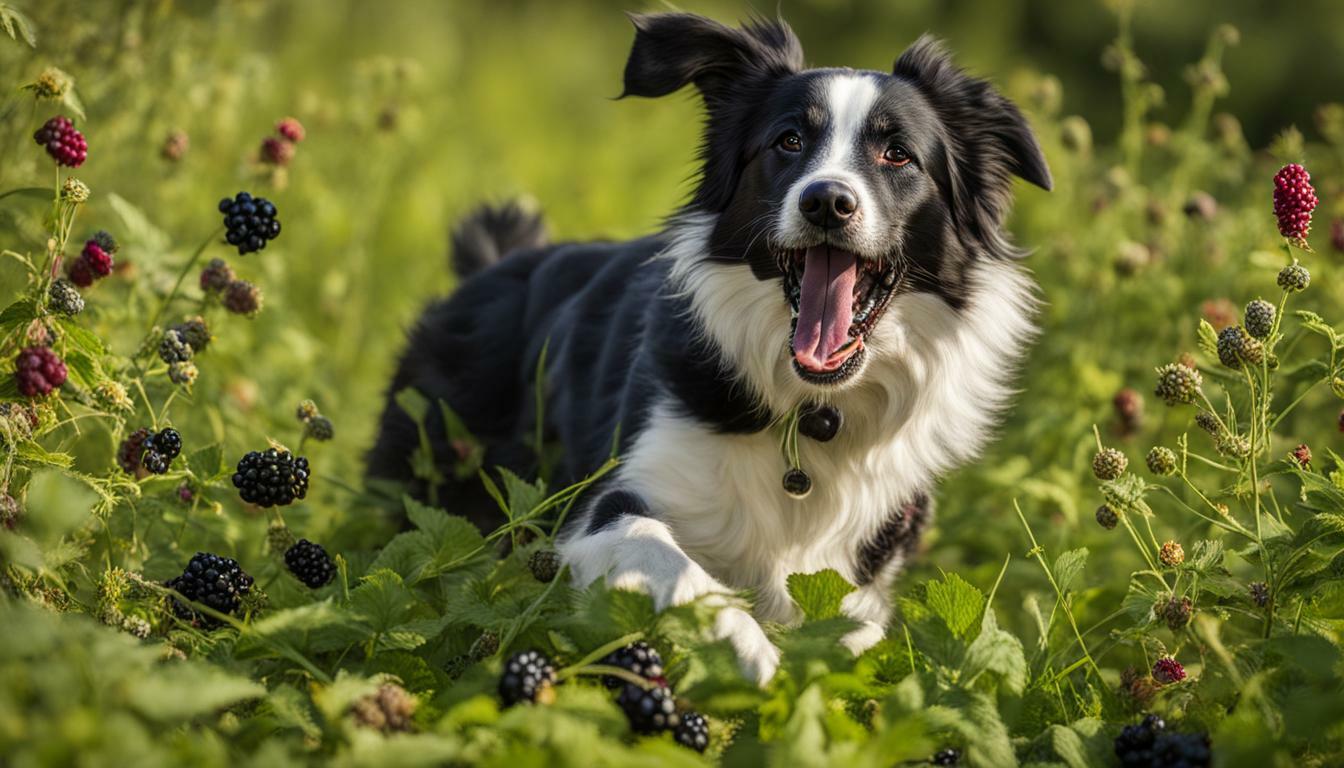Are you wondering if it’s safe to share a treat of honey with your pup? While honey is a rich source of antioxidants and provides numerous health benefits, some potential risks are associated with feeding it to your canine companions. So let’s explore what you need to know about the nutritional content and safety of including honey in your canine companion’s diet.
Can Dogs Eat Honey?
In moderation, most adult dogs can eat raw honey or unpasteurized honey. However, a few things to consider before feeding your pup this treat. Raw honey contains an ample amount of flower pollen that can create antibodies. These antibodies can help prevent autoimmune responses to airborne pollen when warm weather arrives.
Eating raw honey is generally considered safe for most dogs as long as they don’t have seasonal allergies or other medical issues that would prevent them from eating it. However, there are some risks associated with feeding your dog honey.
Like any food you give your dog, it’s important to do research first and make sure what you give them doesn’t contain any ingredients that could be toxic to them.
| Dog Size | Honey Consumption |
|---|---|
| Small (10 lbs) | ¼ teaspoon per day |
| Medium (10-20 lbs) | ½ teaspoon per day |
| Large (20-50 lbs) | 1 teaspoon per day |
| Larger (over 50 lbs) | 2 teaspoons per day |
Is Unfiltered Honey Good for Dogs?
Can dogs eat honey? Yes, but is it safe for dogs? Raw honey can be a beneficial addition to your pup’s diet, especially when it’s locally sourced honey, as its local pollen is packed with powerful antioxidants that can help boost the dog’s immune system. It also contains anti-inflammatory compounds, which can reduce swelling and pain associated with chronic skin diseases or arthritis.
In addition, local honey has antibacterial properties that may help to fight off infection. However, avoid feeding your dog too much honey as it can lead to obese dogs due to its high sugar content.
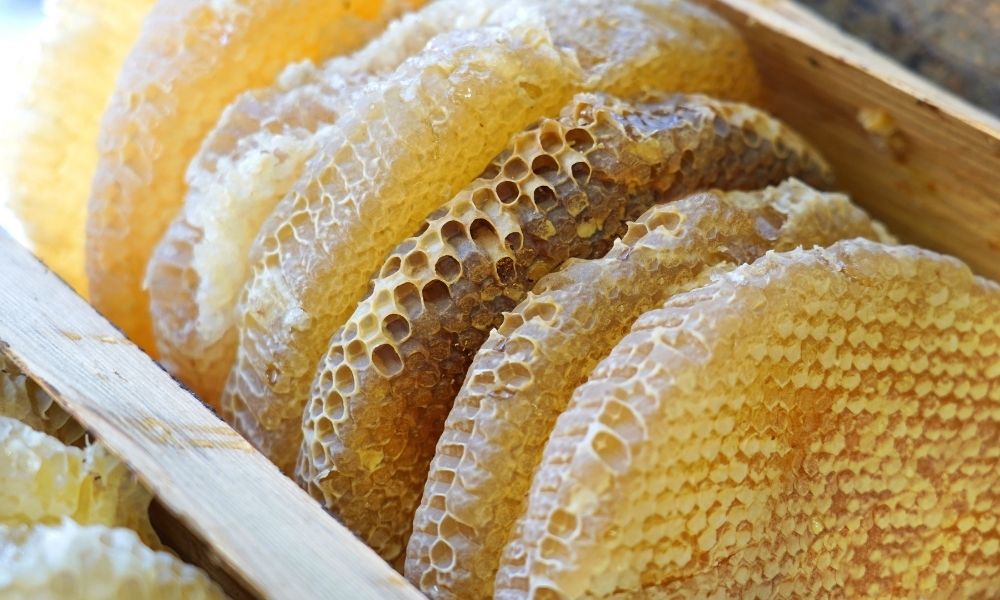
How About Manuka Honey?
Manuka honey, derived from the nectar of New Zealand’s Manuka bush, is said to have even more powerful health benefits than regular honey. It contains higher levels of antioxidants and has antibacterial and anti-inflammatory properties.
While research suggests that feeding your small pup amounts of Manuka honey can positively affect their immune system, it’s important to use this sweet treat sparingly, as too much may cause digestive distress for your four-legged friend.
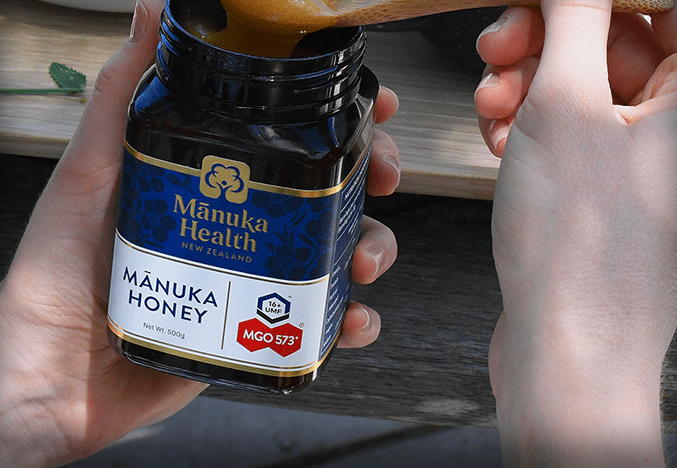
Should My Dog Eat Honey Nut Cheerios?
Honey Nut Cheerios can be an occasional snack for your dog, but it’s important to understand the potential risks associated with feeding this cereal. Since these Cheerios contain added sugar, salt, and other questionable ingredients like artificial colors and flavors, they may cause digestive distress if consumed in large quantities.
Additionally, they contain xylitol which is highly toxic to dogs and should be avoided at all costs. Offering your pup a few Honey Nut Cheerios as an occasional treat is generally safe, but it should not become a regular part of their diet.
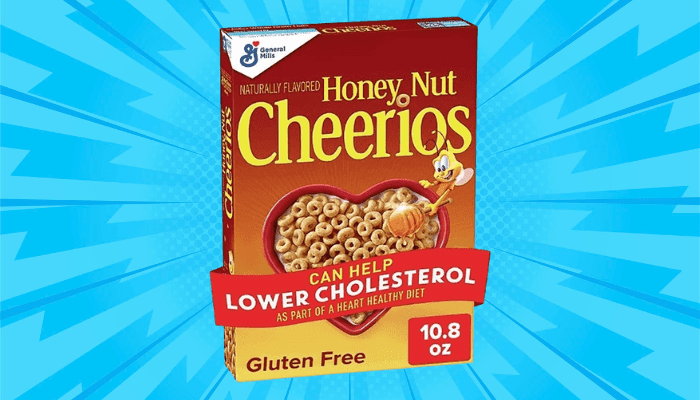
What is Honey?
Honey is a sweet, viscous liquid made by honeybees from the nectar of flowers. It contains trace amounts of vitamins, minerals, antioxidants, and antibacterial properties. This makes it perfect for healing wounds, soothing sore throats, and even helping with allergies. Plus, because of its sweetness, your dog will love the taste.
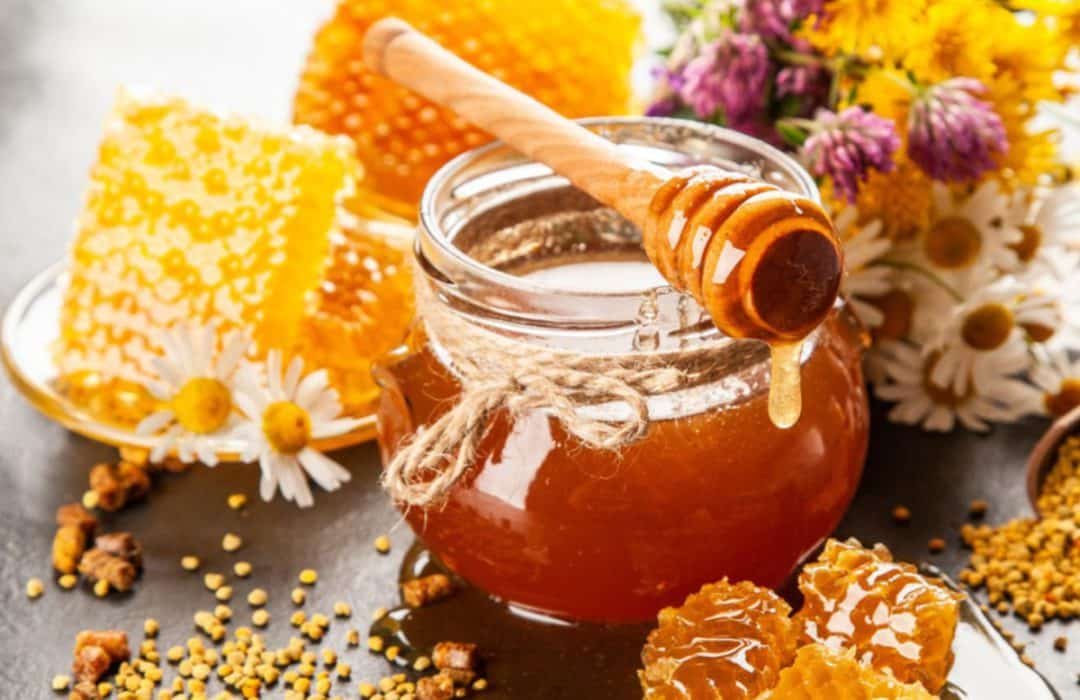
Health Benefits of Honey for Dogs
Allergy Relief: Honey contains natural antioxidants and anti-inflammatory properties that can help to reduce the severity of allergies in dogs. A dog’s immune system may become less reactive to allergens by consuming a small amount of honey, reducing allergy symptoms such as sneezing, itching, and swelling.
Wounds and Skin Irritation: Honey has natural antibacterial and antiviral properties, making it an effective treatment for cuts, wound healing, and skin irritation in dogs. It can help to keep the affected area clean and reduce the risk of infection. The natural enzymes in honey also help to stimulate the growth of new tissue, which can speed up the healing process.
Gastrointestinal Problems: Honey can benefit dogs with gastrointestinal problems such as diarrhea and constipation. Its natural antimicrobial properties can help to reduce the growth of harmful bacteria in the digestive system, while the high levels of antioxidants can help to improve gut health.
Energy Boost: Honey is a natural source of carbohydrates and can provide a quick energy boost for tired or sluggish dogs. It is also a good source of vitamins and minerals, which can help to support overall health and well-being.
Kennel Cough: Kennel cough is a highly contagious respiratory infection that affects dogs. Honey has natural antimicrobial properties that can help reduce the infection’s severity and speed up healing. It can also help soothe the throat and relieve coughing and other respiratory symptoms.
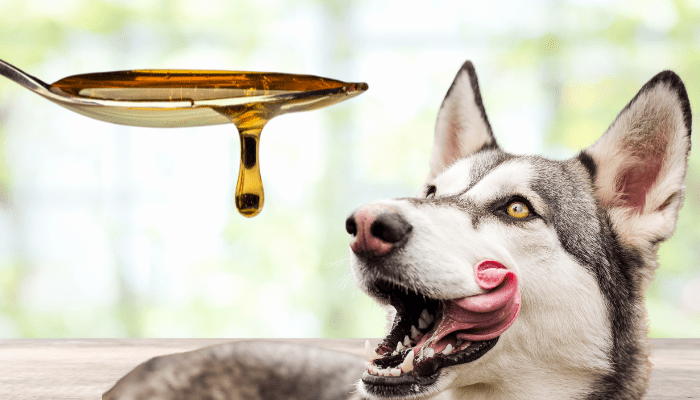
How Much Honey Does My Dog Need?
The amount of honey your dog can consume depends on size and weight. Generally speaking, giving your pup up to 1 tablespoon of honey daily for every 10 lbs of body weight is safe. However, remember that honey should only make up a small portion of your pup’s diet, as too much can cause digestive issues.
Additionally, suppose you are giving your pup Manuka honey. In that case, it’s important to consult a veterinarian first as it contains more antioxidants and antibacterial properties than regular honey.
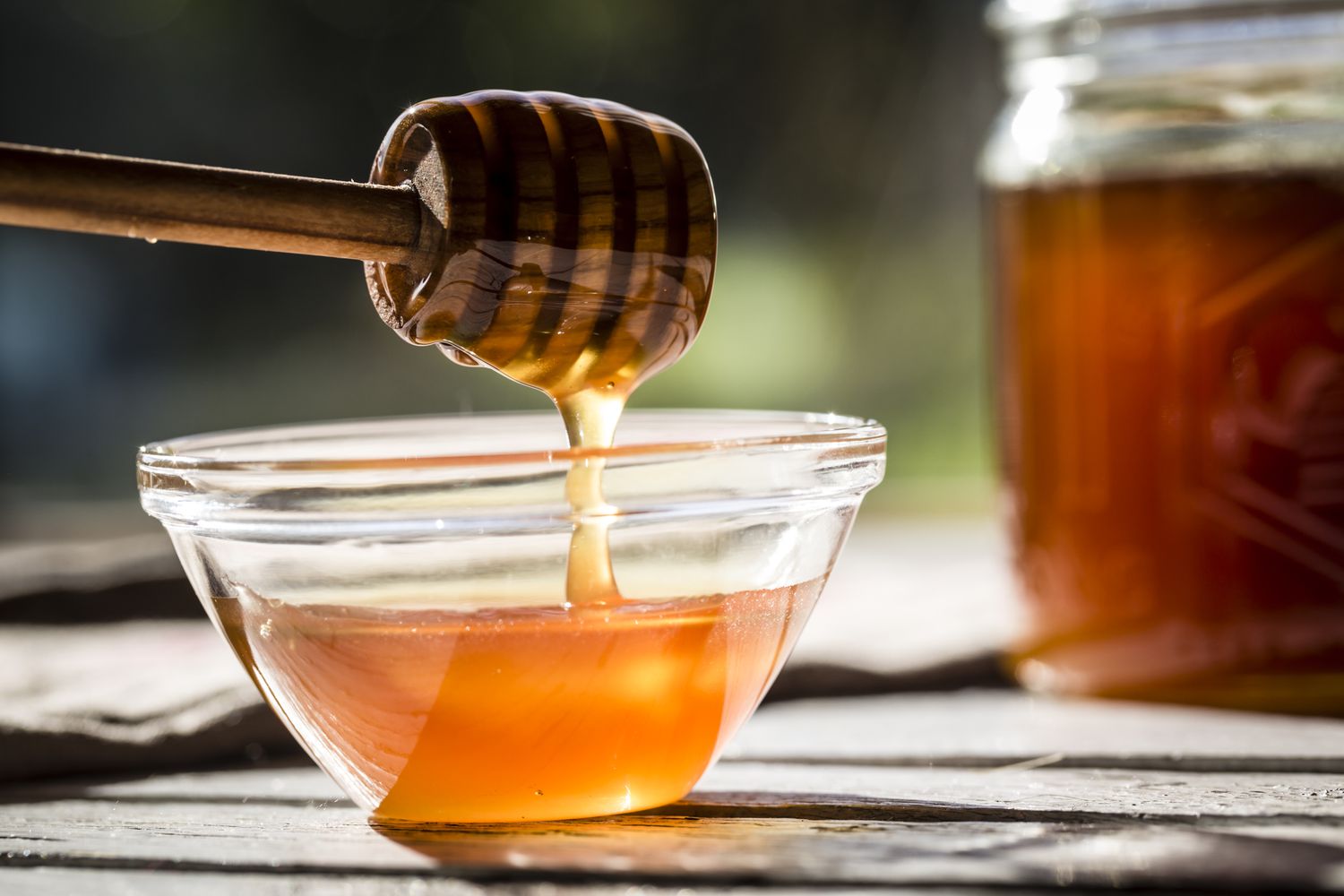
How Do I Feed Honey to My Canine Companion?
There are several ways to feed honey to your canine companion:
- Mix a small amount of honey into your dog’s regular food. Start with a small amount (e.g., one teaspoon) and gradually increase the amount as tolerated.
- Create a homemade treat using honey as an ingredient. For example, you can mix equal parts rolled oats, natural peanut butter, and honey to create a simple and nutritious treat.
- Offer your dog a spoonful of honey as a special treat. You can also dilute the honey with a small amount of water to make it easier for your dog to swallow.
- Add a small amount of honey to your dog’s water bowl to encourage your dog to drink more water
It is important to note that honey should not be fed to puppies under one year of age due to the risk of botulism. Also, as with any treat, honey should be provided in moderation as part of a balanced diet. Finally, it is always a good idea to consult your veterinarian before introducing any new food or treat to your dog’s diet.
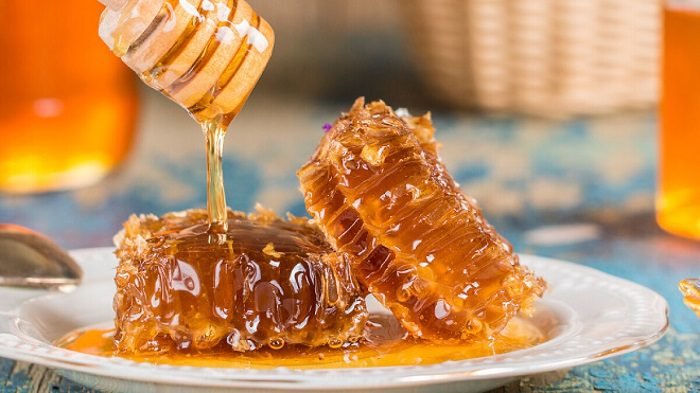
When to Avoid Feeding Honey to Dogs?
Puppies and Senior Dogs: Honey should not be fed to puppies under one year of age due to the risk of botulism. This is because their immune systems are not yet fully developed and cannot effectively fight off the bacteria that can cause botulism. In addition, senior dogs may be more prone to developing health problems that the consumption of honey could exacerbate.
Therefore, it is always a good idea to consult your veterinarian before introducing any new food or treat to your dog’s diet, including honey.
Diabetic Dogs: Honey should be avoided in dogs with compromised immune systems, such as diabetes, as it is a source of simple sugars that can cause an increase in blood sugar levels. Dogs with diabetes need to be carefully managed with a strict diet low in simple sugars and carbohydrates, and honey may not be compatible with this type of diet.
If you want to give your diabetic dog honey, monitor carefully how honey affects blood glucose.
Overweight Dogs: Honey should be fed in moderation as it contains natural sugars that can contribute to weight gain if consumed in excess. If your adult dog is overweight, it is important to monitor their intake of high-calorie dog treats like honey to ensure they consume only what they need.
Dogs Allergic to Bees: Some dogs may be allergic to bees or bee products, including honey. If your dog has a known allergy to bees, it is important to avoid feeding them honey to prevent an allergic reaction.
Symptoms of a bee allergy in dogs may include swelling, hives, difficulty breathing, and vomiting. You must consult your veterinarian for proper diagnosis and treatment if you suspect your dog may be allergic to bees or honey.
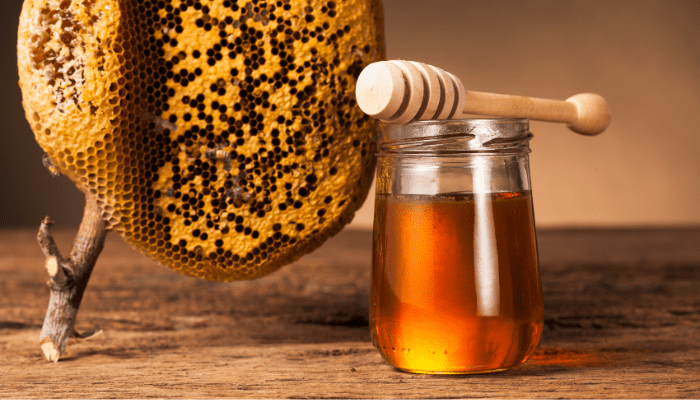
Frequently Asked Questions
How much honey can you give a dog?
With its nutritional and medicinal properties and sweet taste, honey can be a great addition to your pup's diet. The amount of honey they should consume depends on their size and weight – generally, one tablespoon per day for every 10 pounds is the recommended amount.
How much honey is toxic to dogs?
If you're looking to give your pup some honey as a treat, it's important to know how much is safe for them. Generally speaking, dogs can consume up to 1 tablespoon of honey daily for every 10 lbs of body weight without any adverse effects. Not only is it safe, but honey also contains essential vitamins and nutrients that can benefit your dog's health.
Why is honey good for dogs?
Honey is an excellent source of antioxidants that protect your pup's skin from free radical damage. Vitamins C, E, and B are particularly beneficial and can help reduce pain, boost immunity, and keep your pup maintain a healthy body.
What kind of honey is safe for dogs?
When feeding your pup honey, stick with raw, local honey or Manuka honey. These are higher quality than the processed supermarket variety and have many benefits for your dog's health. Plus, they don't contain any low-quality ingredients like high-fructose corn syrup that can be found in some store-bought varieties.
Final Thoughts
In conclusion, can dogs eat honey? While honey can provide numerous health benefits to your canine companion, it is important to understand the potential risks associated with feeding it and consult your veterinarian before introducing any new food or treat to your pup’s diet. However, when done correctly, you can safely share a spoonful of this treat with your pup on occasion as part of a balanced diet. Just remember, moderation is key.





